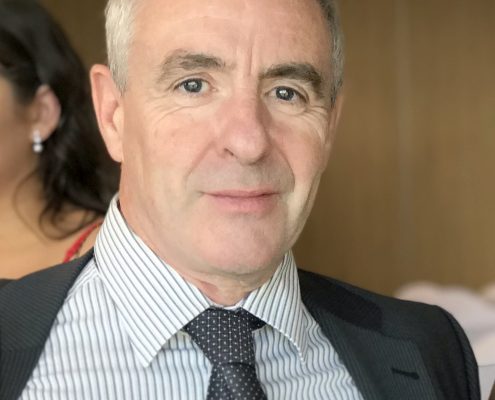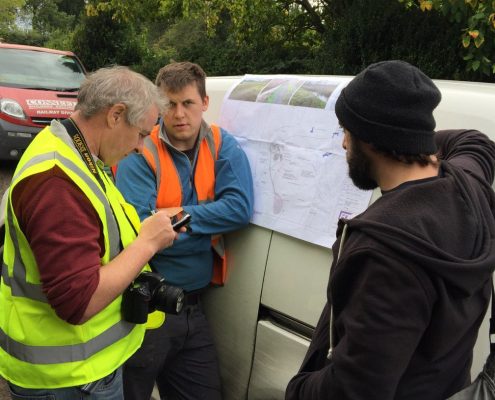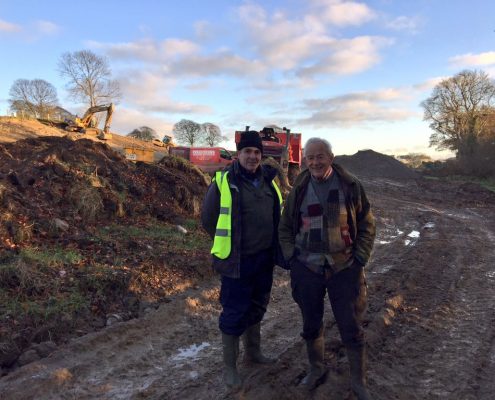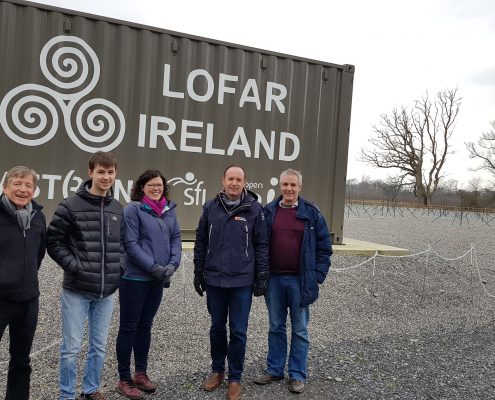Institute of Physics Award for Joe McCauley
Congratulating to the Technical Lead for I-LOFAR, Mr. Joe McCauley, on being awarded an Institute of Physics Technical Skills Award 2021. Congratulations Joe!
The Technical Skills Awards celebrate the contributions that Technicians make to physics, and recognise employers that demonstrate their commitment and contribution to scientific and engineering apprenticeship schemes.
Short citation
For his outstanding technical leadership associated with the planning, construction and operation of the Irish Low Frequency Array (I-LOFAR) radio telescope at Birr Castle.

Long citation
Mr. Joe McCauley is a Senior Experimental Officer at Trinity College Dublin and Technical Lead for the Irish Low Frequency Array (I-LOFAR; www.lofar.ie) at Birr Castle in Ireland. He has shown exemplary technical leadership in all aspects of the I-LOFAR project.
Mr. McCauley was instrumental in the planning and construction of I-LOFAR. These were challenging technical tasks that involved preparation of planning applications, extensive civil ground works, management of contractors, and ultimately the delivery and installation of the telescope in the summer of 2017. Mr. McCauley was the technical lead on all aspects of these tasks, and was key to the project being delivered on time and within budget.

Mr. McCauley led the setting up of the Realtime Transient Acquisition (REALTA) cluster to process near-realtime data from I-LOFAR. His technical insight and leadership of a small group of graduate students and researchers were without doubt critical to the data processing cluster operating as effectively as it now does. A description of this system has recently been published in a leading international scientific journal, Astronomy & Astrophysics (Murphy, et al., 2021).
Following the switch-on of I-LOFAR, Mr. McCauley took the lead role in the development of Python scripts to control I-LOFAR and archive data from the telescope. The control software is now used extensively by a pool of I-LOFAR chief observers and by numerous guest observers, ranging from undergraduate students through to senior researchers.

Mr. McCauley has also taken the lead role in identifying and monitoring sources of radio frequency interference at I-LOFAR. His technical expertise and understanding of how to operate and evaluate data from I-LOFAR have enabled him to identify and monitor changes in the I-LOFAR radio environment. Indeed, Mr. McCauley was primarily responsible for preparing a submission to the regional development plan on RFI from wind turbines and their impacts on I-LOFAR. As a result of his expertise in this area, he was recently appointed Secretary of the Committee for Radio Astronomy Frequencies (CRAF), an Expert Committee of the European Science Foundation.
Mr. McCauley is extremely generous with his time and is always willing to help students, from undergraduates taking their first steps in radio astronomy to research fellows and staff.

As a result of his critical contributions to the radio astronomy projects at Birr Castle, Mr. McCauley has been co-author on 7 referred papers in leading international journals, including the first-light observations from I-LOFAR in Nature Astronomy.



